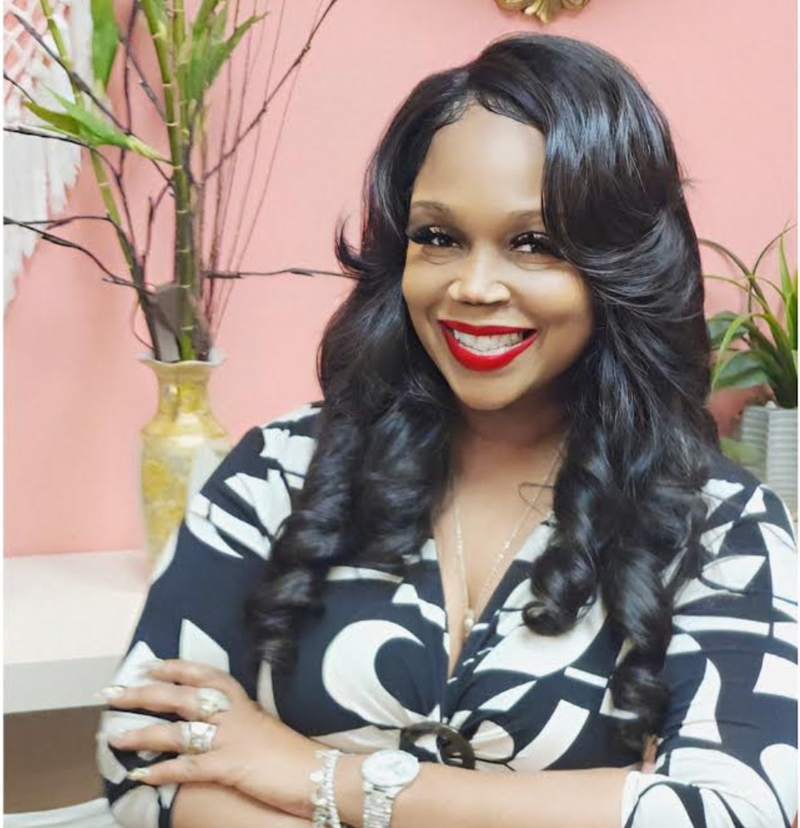Dr. Leola Anifowoshe, a globally acclaimed trichologist and CEO of Texas Hair Restoration and Wellness Center, has dedicated over two and a half decades to the field of hair restoration. Her journey began with a deep-rooted passion for nutrition, herbalism, and holistic well-being, eventually leading her to become the most trusted trichologist in Texas.
With numerous international accreditations to her name, her commitment to helping individuals regain their confidence and self-esteem has earned her global recognition and a slew of prestigious awards in the realm of hair replacement.
Anifowoshe is not content with just being a pioneer in her field; she also passionately shares her knowledge and skills with others. As a respected figure in the industry, she conducts hair show platform work, where she imparts non-surgical hair restoration techniques to fellow cosmetologists and trichologists. This commitment to education underscores her mission to raise awareness about hair loss and provide hope to those battling autoimmune disorders.
Alopecia Areata, a widespread autoimmune disorder resulting in hair loss, plagues millions of individuals worldwide, often accompanied by additional health challenges. Anifowoshe has made it her life’s purpose to empower individuals with holistic hair and scalp health solutions.
Anifowoshe’s expertise is not stagnant; she continually updates her skills by actively participating in hair shows, engaging in ongoing professional education, and staying abreast of the latest hair restoration and replacement industry developments. Her holistic approach combines natural remedies and modern techniques, setting new standards in hair care.
With a doctorate in the Social Sciences and certifications as a Holistic Therapist and Master Herbalist, Anifowoshe stands as a beacon of hope for those facing hair loss.
Don’t miss out! Get top Black headlines in Houston/Texas/America in your inbox Monday-Saturday.
The Defender Network spoke to Anifowoshe about what you need to know about alopecia.
Defender: What are the different types of alopecia you commonly encounter, especially among Black women?
Dr. Leola Anifowoshe : Several types of alopecia can affect Black women, each with distinct characteristics. One of the more common types is Central Centrifugal Cicatricial Alopecia, often called CCCA or “Hot Comb Alopecia.” CCCA is a scarring alopecia characterized by inflammation and hair loss, typically starting at the crown of the head and expanding outward.
Another type is Traction Alopecia, often termed “Trauma Alopecia.” This condition results from repeated tension or trauma to the hair follicles, commonly caused by tight hairstyles like braids, weaves, or chemical relaxers. It typically occurs around the hairline.
There’s also Alopecia Areata, a condition of round or oval hair loss patches. Alopecia Areata is unique as it’s autoimmune in nature, resulting from the body’s immune system mistakenly attacking hair follicles.
Androgenetic Alopecia, sometimes known as hormonal alopecia, affects both men and women, including black women. It’s characterized by gradual hair thinning, often in a distinct pattern, which can involve the crown and frontal areas.
Defender: How do cultural and societal factors, including beauty standards, contribute to the emotional and psychological challenges Black women face regarding alopecia?
Anifowoshe : Cultural and societal factors play a significant role in the emotional and psychological challenges Black women face when dealing with alopecia. In many cultures, including the Black community, hair is deeply tied to one’s identity and perceived beauty standards. There’s often an expectation that natural hair may not conform to mainstream standards, leading to feelings of inadequacy or self-doubt. This can create emotional distress, affecting self-esteem and mental health. It’s crucial to acknowledge the impact of these factors and foster a more inclusive and positive perspective on various hair types and styles.
Defender: What unique hair practices and styling techniques can help Black women manage alopecia effectively?
Anifowoshe : Several unique hair practices and styling techniques can aid in managing alopecia. Protective styles like braids, cornrows, and crochet hairstyles are popular choices. These styles minimize manipulation and tension on the hair, reducing the risk of damage and breakage. Proper detangling methods and regular scalp massages can also promote healthy hair growth. It’s essential to choose styles that align with your hair’s needs and consult with a trichologist for personalized recommendations.
Defender: Are there effective treatments available for alopecia in Black women, and what should they consider when exploring treatments?
Anifowoshe : There are effective treatments available for various types of alopecia in Black women. However, it’s crucial to stress the importance of early and accurate diagnosis. Consulting a trichologist is the first step, as they can identify the specific type of alopecia and recommend tailored treatments. Patients should also consider their overall health, addressing factors like gut health, as these can influence hair condition.
Defender: How can healthcare providers, schools, and communities contribute to raising awareness about alopecia, especially in the Black community?
Anifowoshe : Healthcare providers should integrate hair health into their patient assessments, acknowledging the significance of hair as an indicator of overall well-being. Schools can play a role by promoting self-acceptance of natural hair. Communities can organize events, workshops, and support groups to foster a sense of unity and empowerment. Creating a safe space where individuals can openly discuss their hair-related concerns and seek guidance is essential.
Defender: What is the most important message or advice you would give Black women in navigating the challenges of alopecia?
Anifowoshe : To Black women facing alopecia, I want to emphasize that you are not alone in this journey. Alopecia is a treatable condition, and early intervention is key. Trust your instincts and seek professional help when you suspect a hair issue. Embrace your unique hair personality. Remember that your hair is an extension of your health, and taking care of your overall well-being, including gut health, can positively impact your hair.
Support the Defender
Our pledge is to elevate solutions, share successes, and amplify the experiences of Black people. We cannot do it alone.



